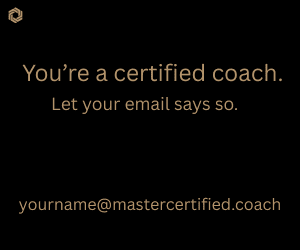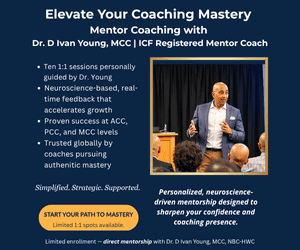Coaching is a powerful tool that enables a person to find self-discovered solutions to a number of challenges, one of which includes dealing with negative relationships, be it involving friends, family or even coworkers. In difficult situations, people often find themselves being unable to think clearly and they instead rely on others to seek advice and solicit opinions. Unless you consult a qualified coach who can help you deal with the problem effectively, most others will, unfortunately, worsen the situation by passing on their own negativity to you.
What if there was a way to help self-coach yourself out of a negative situation or relationship? Keeping that in mind, I have compiled a list of questions that can help you in looking at negative situations/relationships differently. The questions have been designed to help you identify holes in your thinking. As soon as you find yourself encountering a negative relationship, ask yourself the following questions:
1) Is my negative opinion based on facts or opinions? Most conclusions are derived, based on our own opinion or that of others rather than factual evidence. Once we learn to identify unsubstantiated opinions, we become open to other possible consequences and explanations that could be equally true.
2) Has the relationship always been like this? Or, is this a first time/one-off instance? This will differentiate the existing situation or behavior from what you would normally expect.
3) Has there ever been a time when this relationship was positive or different from what it is now? This will help in acknowledging positive elements of the relationship and mitigate any intense bitter feelings, thereby creating positive vibes for future.
4) If the answer to the last question is YES, what were the circumstances? Remembering and recounting these happy moments will alleviate pain and restore feelings of hope and trust.
5) If the relationship has been going through a specific phase, could it be that the person involved is reacting in the best way known to them and they are unaware of any better way? Our responses and the way we act in a given situation are molded by our own perceptions and personal experiences, which may differ vastly from others. What one party deems appropriate might seem unreasonable to others. And that’s because their judgments are formed based on their own views and not ours. Communication style also plays a very important role in handling any situation. We must not forget that many times, people come across as being negative—not because they are essentially bad, but because of a failure to communicate or express themselves in an appropriate manner.
6) Could the timing be a factor resulting in the person acting in a certain way? (Look out for triggers such as a crucial period at work, a new job, a new responsibility or role, a transition period, a relocation, etc.). This will allow you to see the situation from a fresh perspective; most people react differently to different situations. You can possibly not expect a calm and poised response from an otherwise composed person if the latter is going through a challenging phase in life. Ask yourself if the person will be different a few weeks from now when the timing is more favorable.
7) Could there be other factors affecting this person (For example, loneliness, depression, boredom, old age, insecurity, fear of losing or missing out, health issues, etc.)? It becomes easier to relate to a person when we find out the real reasons behind them acting out of the ordinary.
8) Is there anything you can do or have done to improve the situation for or with this person? Perhaps, there is a number of ways in which you can help the person feel better. Empathy coupled with practical solutions can go a long way. Think of ways that you can try or have tried before and that have helped the situation. Maybe you could try them again. Have all efforts been exhausted or are there still a few things left to try out? Doing this will move you from a self-pitying or resentful mode to one which is constructive and solution oriented.
9) What will be the worst consequence, and how will it affect you? They say anything that doesn’t kill only makes you stronger. Most times, the worst-case scenario will not be as bad as you think. When you realize this, you feel more prepared to face whatever consequence arises from it.
Negative thinking can be an energy vampire and can severely limit you from achieving your objectives. It is also important to point out that these questions will only help you in seeing situations in a new and positive light. Coaching doesn’t necessarily ensure that a situation will be in your favor. It, however, prepares you to make more well-informed decisions regarding any situation or relationship, free from personal biases and subjectivity. Some relationships can be emotionally exhausting and difficult to cope with despite all efforts. But for most others, asking the above questions can help put you in the right direction.
Disclaimer
The views and opinions expressed in guest posts featured on this blog are those of the author and do not necessarily reflect the opinions and views of the International Coach Federation (ICF). The publication of a guest post on the ICF Blog does not equate to an ICF endorsement or guarantee of the products or services provided by the author.
Additionally, for the purpose of full disclosure and as a disclaimer of liability, this content was possibly generated using the assistance of an AI program. Its contents, either in whole or in part, have been reviewed and revised by a human. Nevertheless, the reader/user is responsible for verifying the information presented and should not rely upon this article or post as providing any specific professional advice or counsel. Its contents are provided “as is,” and ICF makes no representations or warranties as to its accuracy or completeness and to the fullest extent permitted by applicable law specifically disclaims any and all liability for any damages or injuries resulting from use of or reliance thereupon.
Authors
Post Type
Blog
Audience Type
Coach Educators, Experienced Coaches, External Coaches, ICF Chapter Leaders, Internal Coaches, New Coaches, Professional Coaches, Team and Group Coaches
Topic
Coaching Toolbox, Discover - Your Coaching Career
Related Posts
The Power of Active Listening in Meaningful Coaching: Why Active Listening is the Most Essential Coaching Competency
Of all the foundational coaching competencies identified by the International Coaching Federation…
Allyship in Action: Coaching as a Catalyst for Change
Allyship is often framed as a value or an intention. In practice,…
Grace Under Fire: Building Stress Resilience for Coaches and High Achievers
There’s a unique kind of pressure that lives at the intersection of…







